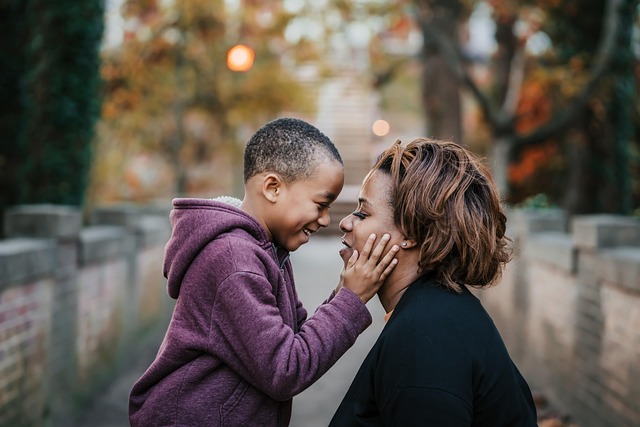- Log in to post comments
- 28 views

Okay. I’m a member of an organization called Friends of the Champ. It’s an organization that I started with five other people. It’s a group that tries to raise money for homeless fighters—boxers from the past who’ve had a lot of their purses taken away from them and are now living on the streets, living in parks, living in apartments... well, were living in apartments—they’ve just been kicked out of them because they don’t have rent money.
So, we started an organization to raise money for them. And in order to raise the money, we’ve invited some big-name fighters—we’ve paid them to come to various get-togethers that we’ve planned in different hotels and so on. And the people who pay for tickets, obviously, they know that all that money is going to go to support indigent fighters.
At one time in White Plains—this is about two years ago—the people we invited included some fighters named Larry Holmes, Gerry Cooney, Aaron Davis, Roberto Duran… a number of names that anybody who knows boxing would recognize.
So anyway, I was asked by the man who runs the organization to introduce Larry Holmes. Now, I had met Larry Holmes about ten years before that in Las Vegas at a trade show, and I found him to be a very, very pleasant guy.
So I went up to him just before he was going to be introduced and said, “Larry, you don’t remember me, but I saw you in Las Vegas…”
And he laughed and said, “I don’t remember what I had for breakfast this morning—I certainly don’t remember you!”
So I said, “Okay,” and I started telling him some of the things we had talked about.
He says, “Oh yeah, I remember that.”
So I felt very at ease with him.
I got up to introduce him—he was sitting on the dais with a number of the other fighters—and I said, “I’d like to introduce Larry Holmes, the next fighter who’s being honored tonight. And we thank you so much for coming here, Larry. We know you came here for the purpose that we all came here: to support these fighters who are having a hard time.”
He lifted his hand and said, “Thank you.”
I said, “Larry Holmes—for those of you that follow boxing, or even if you don’t—defended the heavyweight championship more times than any fighter in the history of boxing. He was a sparring partner for Muhammad Ali, and basically ended Ali’s career when they stopped him on a technical knockout—because he wouldn’t hit Ali anymore in the ring. He admired him too much. And the referee finally stopped the fight. He’s legendary for a number of reasons.”
So anyway, I started talking about him to the crowd. I went through the fact that he was a great amateur, he came up, turned pro, and became very successful. I spoke about the life he had led—driving trucks, working in the fields, and everything like that—and how his mother told him never to quit.
His mother told him, “Never quit,” because, she said, “Son, none of us in this family have ever quit.”
His father used to travel on a regular basis up north to earn money, because he wasn’t able to be employed down south. So he would travel up there, come back at night, stay for a few weeks, bring the money back, and then leave again.
He didn’t know his father well, but he knew his mother very well.
So anyway, I spoke about that. And when I was finished, everybody clapped. And I said, “So now, I’d like to introduce Larry Holmes.”
So Larry walked toward me, hugged me, and moved his way up toward the dais podium. He paused for a second, and I looked—and he was crying.
And he said, “Excuse me for a second,” and then said, “I’d like to thank you so much…” and went on with his regular speech. And everybody applauded at the end. Then Cooney came up, and so on.
So when everything was over at this hotel in White Plains, I said to the man who runs the organization with me, “I know you were sitting right in front of the podium—did you notice that Larry was crying?”
And he goes, “Yeah, my wife and I noticed that. We didn’t understand why.”
I said, “I’d like to know why.”
He says, “I’ll ask Cooney.”
So he goes up to see Gerry Cooney—and the Holmes–Cooney fight was a legendary fight. He and Cooney are very, very close friends. He goes up to Cooney, speaks to him for about two minutes, and then comes back to my table.
And he says, “He was crying—Cooney says—because no one ever talks about his mother. Ever. Larry goes to these things every month. He goes all over the world. He’s introduced because of his greatness, because of his record, and because of all the people he fought and successfully defended against. But no one talks about his growing up. No one.”
He said, “When you started talking about his mother, he started to cry—because the whole audience was listening, and his mother, all of a sudden, was back with him. So when he got up to the podium, he couldn’t control himself for a couple of seconds, and then he went on with his speech.”
So that’s an aspect of some of these fighters that you don’t realize.
You don’t realize the hardships. You don’t realize how they got there. And you don’t realize the people who were vitally important in their lives.
And in Larry’s case—it was his mom.
And it touched him.
And I really respect Larry for that.